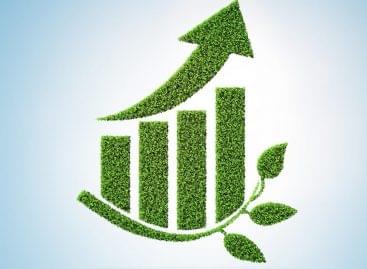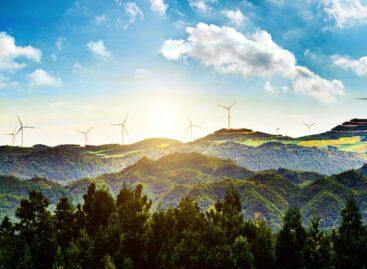This is what Hungarians think about the connections between the energy crisis, the war and the green transition
According to three quarters of Hungarians, the war in Ukraine and high energy prices should speed up the green transition.

(Photo: Pixabay)
- 77% believe that the Russian invasion of Ukraine and its consequences should provide an impetus to accelerate the green transition
- 86% believe that if we do not drastically reduce our consumption of energy and goods in the coming years, we are heading for a global catastrophe
- 71% want polluting activities such as aviation and urban off-road vehicles to be taxed more heavily, taking into account their environmental cost
- 65% support that energy prices be tied to consumption and that larger consumers should pay more
These figures come from the latest annual climate survey conducted in August 2022 and published today by the European Investment Bank (EIB). The EIB is the lending body of the European Union and the world’s largest multilateral lender for climate protection projects. After a challenging year, when Russia’s invasion of Ukraine triggered an ongoing energy crisis and fueled inflation across Europe, as well as an extreme summer characterized by record-breaking heat waves and drought, Hungarians have become even more aware of the impact of climate change and the need to act urgently.
Climate change awareness and the urgency of the situation
While last year Hungarians saw the Covid-19 pandemic as their number one challenge, today concerns about inflation dominate, with 72% citing inflation as their number one concern – compared to 36% in the rest of the EU. At the same time, 91% of Hungarians claim that they feel the effects of climate change in their daily lives (+4 percentage points compared to 2021). 86% believe that if we do not drastically reduce our consumption of energy and goods in the coming years, we are heading towards a global catastrophe. At the same time, 91% believe that the government is acting too slowly, and only 35% think that Hungary will succeed in significantly reducing carbon dioxide emissions by 2030.
The war in Ukraine and the green transition
Three-quarters of Hungarians (77%) believe that the war in Ukraine and its consequences on oil and gas prices should give impetus to the acceleration of the green transition (+11 percentage points compared to the European average of 66%). When asked how they would prioritize the actions, Hungarians expect the government to consider the development of renewable energy as a priority (63%), followed by a focus on diversifying the energy supply to avoid over-dependence on a single provider (23%) . Energy conservation is less of a priority: only 14% of Hungarians agree with the statement that people and businesses are not really willing to change their production and consumption methods (this is 5 percentage points less than the EU average of 19%).
Addressing climate change and high energy prices
In order to reduce energy consumption, most Hungarians would like polluting activities – such as air transport and urban off-road vehicles – to be taxed more heavily, taking into account their environmental cost (71%). They also support linking energy prices to consumption and requiring larger consumers to pay more (65%). If Hungarians had to reduce the temperature of their homes this winter, only 11% would accept the official recommendation of no more than 19°C (this is 17 percentage points less than the EU average of 28%). At the same time, 32% of Hungarians claim that they cannot afford adequate heating of their homes even now. Finally, regarding the management of high energy prices, Hungarians believe that the government should reduce energy-related taxes in the short term (32%, 43% among far-left sympathizers). Other measures are less popular, including encouraging energy conservation through public campaigns (26%), regulating or capping the price of gas, oil and coal (23%), and distributing energy vouchers (13%).
EBB Vice-President Teresa Czerwińska explained: “The EBB’s 2022 climate survey shows that the majority of Hungarians support prioritizing the transition to renewable energy production as an effective way to overcome the global climate and energy crisis. This is very welcome support ahead of the COP27 climate change conference. The EIB is ready to continue providing practical support to Hungary and to ensure that the country can benefit from our decades of experience in supporting innovative clean energy investments over the years, including the modernization of the energy supply, wind farms and more energy-efficient social housing.
Related news
There could be a serious problem with one of the important cornerstones of food production
Fertilizer is one of the most important pillars of modern…
Read more >Sustainability in focus: Generali EnterPrize competition for the 15 million HUF prize is launched
This year, the Generali Group is announcing the EnterPRIZE international…
Read more >European Union launches another Innovation Fund round
A new round of the European Commission’s Innovation Fund is…
Read more >Related news
WHO: They urge a 50 percent price increase for tobacco, alcohol and sugary drinks
The World Health Organization (WHO) is calling for the prices…
Read more >Eurozone economic growth accelerated in June
The eurozone’s economic performance accelerated in June, according to the…
Read more >This is how drug prices are changing: the government introduced price restrictions
The Ministry of National Economy’s price restrictions on medicines came…
Read more >






